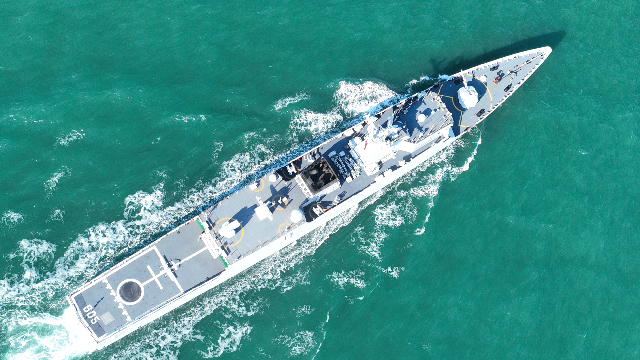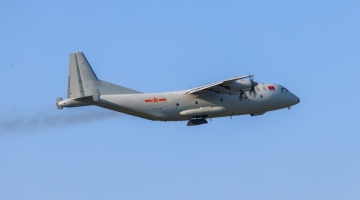By Liang Guojie, Li Junlin
The UK is seeking to finalize a deal on handing sovereignty of the Chagos Islands to Mauritius, a matter purely between the UK and Mauritius. However, some US and UK politicians have dragged China into the issue, claiming that returning the Chagos Islands would benefit China and potentially provide a foothold for Chinese military presence in the Indian Ocean. Such claims are utterly groundless malicious smears, reflecting a small-minded speculation against China.
The sovereignty dispute over the Chagos Islands is fundamentally a historical issue between the UK and Mauritius. Strategically located at the crossroads of the Indian Ocean, the Chagos Islands sits roughly equidistant from Africa, South Asia, and the Middle East, earning it the nickname "Crossroads of the Indian Ocean." In 1814, the islands fell under the British colonial rule. In 1966, the UK leased Diego Garcia, the largest island in the islands, to the US for the establishment of a military base.
To assist the US in building the military base, the UK government forcibly expelled between 1,500 and 2,000 Chagossians between 1968 and 1973, relocating them to other islands in Mauritius and the neighboring Seychelles. The displaced islanders and their descendants have yet to fully integrate into the societies they were moved to, and they have never stopped claiming rights to return to their homeland. In response to the continued appeals from the Chagossians and the government of Mauritius, the International Court of Justice (ICJ) issued a ruling in 2019, affirming that the UK occupation of the Chagos Islands is illegal and that sovereignty over the islands should be returned to Mauritius. In the same year, the UN General Assembly also passed a resolution urging the UK to relinquish control of the Chagos Islands.
In October of last year, the UK and the government of Mauritius announced a historic agreement under which the UK would return sovereignty of the Chagos Islands to Mauritius. However, the agreement stipulates that Diego Garcia, the largest island in the archipelago, will continue to host a military base jointly controlled by the UK and the US and that the lease for the US-UK military base on Diego Garcia will span 99 years, with the rent amounting to billions of pounds. The US has expressed its support for this arrangement. However, the UK and the US have encountered disagreements with the new government of Mauritius over issues such as the lease agreement and rent, causing the deal to remain unsigned to this day.
When it comes to the issue of sovereignty over the Chagos Islands, the UK continues to exhibit the cunning and arrogance of a colonial power. This is primarily reflected in the deliberate delays in the negotiation process and an attempt to secure long-term control over the Diego Garcia military base with extremely low rent. Shortly after the UK announced the agreement of sovereignty transfer of the Chagos Islands to Mauritius in October, 2024, it further stated that the agreement would be submitted for review to the US.
The negotiations between the UK and Mauritius regarding the return of the Chagos Islands need to be advanced on the basis of international legal rulings and considerations of historical justice. Some UK and US politicians have groundlessly linked China to the issue, claiming it would threaten the US's key military posture in the region. Such rhetoric lacks factual support and is purely malicious speculation. Mauritius has long adhered to a neutral and non-aligned foreign policy, maintaining cooperative relationships with multiple countries, including India and the US. China, likewise, is committed to developing bilateral relations with Mauritius based on respect for its choices. Besides, China pursues an independent foreign policy of peace and remains steadfast in its commitment to a path of peaceful development.
Any rhetoric that links this issue to China is purely baseless and intends to fabricate the non-existent "China threat". Such arguments only further expose the lingering Cold War mentality and geopolitical anxiety of these Western politicians.













